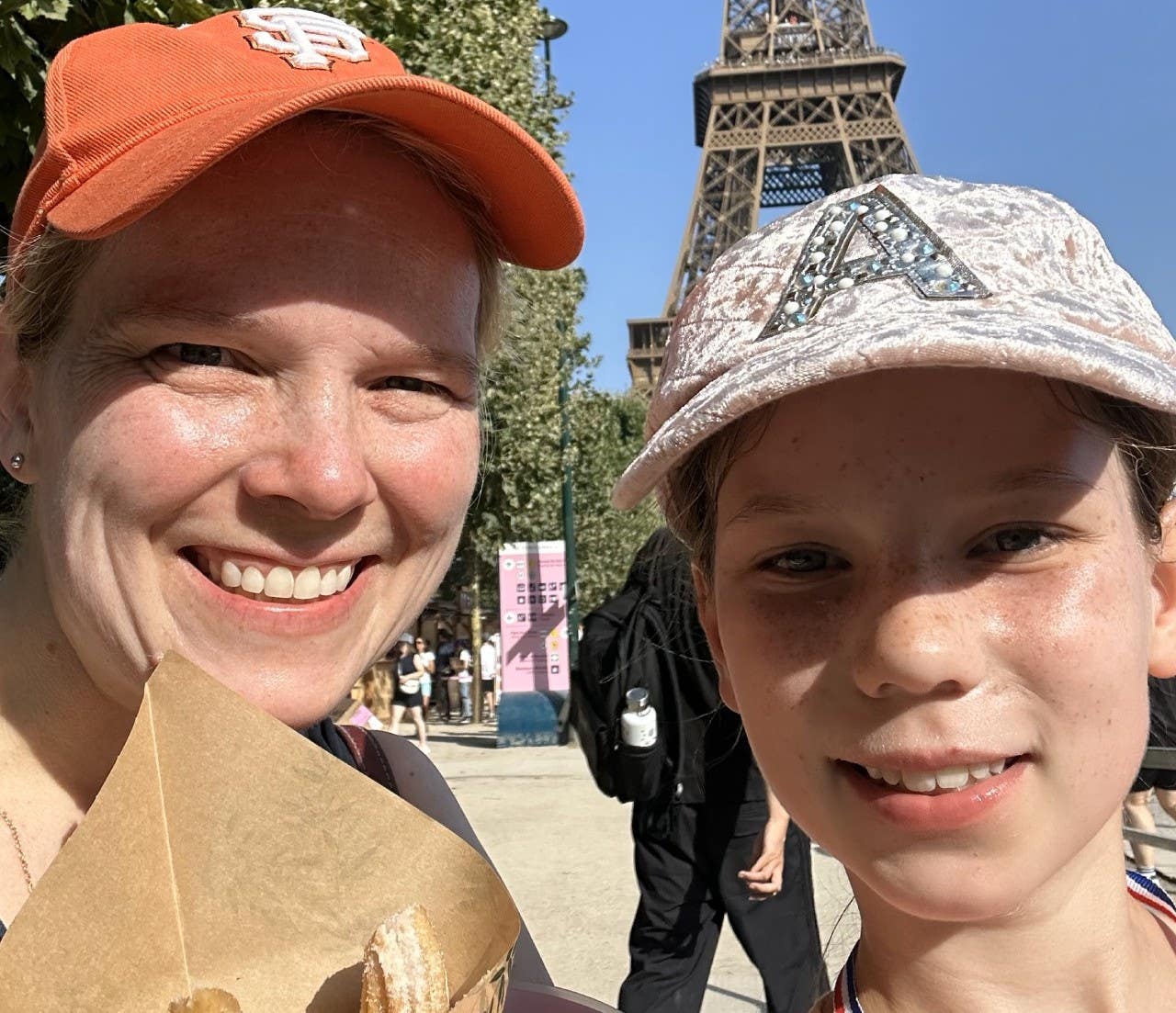I’m a payments analyst. Here’s how my family is paying for things at the Paris Olympics

My wife Chelsea and older daughter Ashleigh are currently in Paris attending the Olympics. As someone who studies the payments industry, I’m understandably interested in how they’re paying for things during their trip.
The intrigue actually started even before they left. I went to our local Citibank branch, where we have a checking account, to try to obtain some Euros that they could bring with them. Airports and tourist centers usually charge especially high foreign exchange fees, so I wanted to take care of this ahead of time. We envisioned them using a credit card for most purchases, but figured it would be helpful to have some small bills for tips or small-dollar transactions.
Unfortunately, Citibank told me there is a $100 minimum for foreign currency exchanges, so we decided they would try to use credit cards for everything.
Foreign transaction fees
Our three cash back credit cards all charge foreign transaction fees, ranging from 3 percent on the Wells Fargo Active CashⓇ Card and Chase Freedom FlexⓇ* to 2.7 percent on the Blue Cash PreferredⓇ Card from American Express. Our Citibank debit card also assesses a 3 percent foreign transaction fee.
I considered signing up for a new credit card that doesn’t charge foreign transaction fees, but we’re happy with our current three-card lineup and don’t travel abroad often. Adding another card simply wasn’t worth the hassle. Plus, the Active Cash gives 2 percent cash rewards on every purchase, so that essentially knocks the foreign transaction fee down to about 1 percent. That’s not so bad.
Many of Chelsea and Ashleigh’s purchases were made in advance via U.S. dollars, which further softened the blow. We had an interesting experience paying for their Disneyland Paris outing. The website says Visa and Mastercard credit and debit cards are accepted, but when I clicked to pay, I repeatedly received error messages before I was even able to type in the card numbers. It seemed like a case of a faulty website rather than something specific to our cards (since I couldn’t even enter our card info).

Using PayPal as a workaround
I was about to panic because the next course of action seemed to require an international phone call, and I wasn’t sure how to do that or what kinds of fees that might incur. But then I noticed PayPal was accepted, and that miraculously worked! The transaction was processed in U.S. dollars, an added bonus since it enabled us to avoid foreign transaction fees.
I paid via PayPal with my Freedom Flex card as the underlying source of funds, since live entertainment is among its Q3 2024 5 percent cash back categories (activation is required and the 5 percent payout applies to up to $1,500 in quarterly spending; cardholders earn 1 percent cash back after that).
Chase’s press release specifically says amusement parks are included, but unfortunately I only got the standard 1 percent cash back rate, not the 5 percent bonus. Apparently since the park tickets were bundled with a hotel stay, that no longer counts as live entertainment. We recently bought standalone park tickets to Disney World in Orlando and that did qualify for 5 percent back.
A cross-border refund
One other notable payments experience was that they had prearranged a couple of nail salon treatments but the salon unexpectedly closed for the day and they weren’t able to find another mutually available time. It took a few awkward emails facilitated by Google Translate, but the salon eventually refunded the money to our Freedom Flex card. I was impressed that Chase even refunded the foreign transaction fee.

Contactless payments
Chelsea reports that she’s being prompted to tap her credit card more than in the U.S. Contactless payments (made possible by tapping an RFID credit card or a smartphone at the point of sale) are widely available in the U.S. as well, but many Americans choose to dip their card into the payment terminal instead. In France, tapping seems more popular.
Automated ticket machines
They haven’t had trouble at automated train ticket kiosks, either. A few years ago, many Americans ran into compatibility issues because Europeans often use “chip and PIN” credit cards, whereas Americans tend to have “chip and signature” cards. Based upon Chelsea and Ashleigh’s experience and other things I’ve read, this pain point seems mostly resolved at this point.
The bottom line
Chelsea and Ashleigh are more than halfway through their trip, and they haven’t had a need for cash. Our U.S.-based credit cards are working smoothly; I’m sure it helps that Paris is such a major city. They’re enjoying the Olympics and tapping their way through payment terminals across the City of Lights.
Have a question about credit cards? E-mail me at ted.rossman@bankrate.com and I’d be happy to help.
*The information about the Chase Freedom FlexⓇ has been collected independently by Bankrate. The card details have not been reviewed or approved by the issuer.






